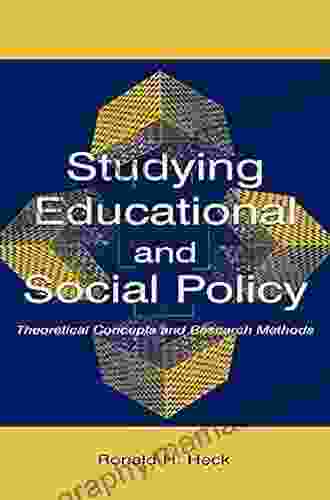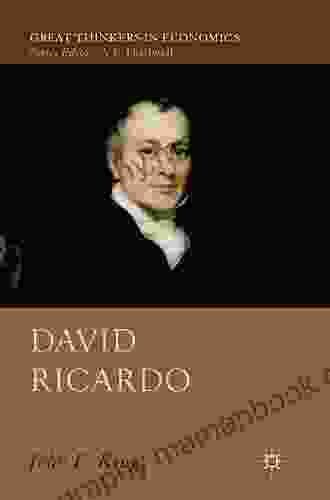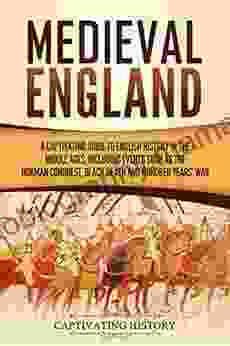Theoretical Concepts and Research Methods in Sociocultural, Political, and Economic Perspectives

Understanding the complexities of human behavior and social interactions requires a multifaceted approach that draws upon various theoretical frameworks and research methodologies. Sociocultural, political, and economic perspectives provide distinct lenses through which researchers examine the interconnections between individuals, societies, and the broader cultural, political, and economic structures that shape their lives.
This article aims to provide a comprehensive overview of the theoretical concepts and research methods commonly employed in these fields of study. We will explore a range of theories, methodologies, and analytical approaches, examining their key principles, strengths, and limitations, and illustrating their application through specific examples.
4.2 out of 5
| Language | : | English |
| File size | : | 1764 KB |
| Text-to-Speech | : | Enabled |
| Screen Reader | : | Supported |
| Enhanced typesetting | : | Enabled |
| Word Wise | : | Enabled |
| Print length | : | 626 pages |
Theoretical Concepts
Sociocultural Perspectives
Sociocultural perspectives emphasize the influence of culture, social structures, and norms on individual and collective behavior. Key theories in this tradition include:
- Structuralism: Views society as a structured system of interrelated components, each performing specific functions that contribute to the overall stability of the system.
- Functionalism: Focuses on the interconnectedness of social institutions and how they work together to maintain social equilibrium and order.
- Symbolic Interactionism: Emphasizes the importance of symbols, meanings, and social interactions in shaping individual and collective identities and experiences.
Political Perspectives
Political perspectives examine the distribution and exercise of power within societies. Key theories in this area include:
- Marxism: Views society as a class struggle between the bourgeoisie (owners of capital) and the proletariat (working class),with the former exploiting the latter.
- Liberalism: Emphasizes the importance of individual rights, freedoms, and limited government intervention.
- Post-Structuralism: Deconstructs traditional notions of power and authority, challenging the idea of a monolithic state and exploring the diverse and fluid power dynamics that exist in society.
Economic Perspectives
Economic perspectives focus on the production, distribution, and consumption of goods and services. Key theories in this domain include:
- Classical Economics: Emphasizes the role of individual self-interest and competition in driving economic growth.
- Keynesian Economics: Focuses on the role of government intervention in managing aggregate demand and stabilizing the economy.
- Institutional Economics: Examines the role of institutions, such as laws, regulations, and social norms, in shaping economic behavior and outcomes.
Research Methods
Qualitative Research
Qualitative research methods emphasize the collection and analysis of non-numerical data, such as interviews, observations, and documents. They aim to provide an in-depth understanding of the meanings, experiences, and perspectives of individuals and groups.
Common qualitative methods include:
- Ethnography: Involves long-term participant observation and immersion in a specific cultural or social setting.
- Case Study Research: Focuses on the detailed examination of a particular case or situation, providing insights into specific phenomena or processes.
- Interview Research: Involves the collection of data through in-depth or semi-structured interviews with individuals or groups.
- Discourse Analysis: Examines the ways in which language and communication shape social and cultural interactions.
- Content Analysis: Involves the systematic analysis of text, images, or other forms of content to identify patterns and themes.
Quantitative Research
Quantitative research methods emphasize the collection and analysis of numerical data, such as surveys, polls, and experiments. They aim to generalize findings to larger populations and test hypotheses through statistical analysis.
Common quantitative methods include:
- Survey Research: Involves the collection of data through questionnaires or interviews administered to a large sample of individuals.
- Poll Research: Similar to survey research, but typically involves a smaller sample size and a focus on specific current events or issues.
- Experimental Research: Involves manipulating one or more independent variables to examine their effects on a dependent variable under controlled conditions.
Mixed Methods Research
Mixed methods research combines both qualitative and quantitative approaches, integrating different types of data and methodologies to provide a more comprehensive understanding of research questions.
Common mixed methods research designs include:
- Sequential Design: One phase of the research is conducted using qualitative methods, followed by a subsequent phase using quantitative methods.
- Concurrent Design: Both qualitative and quantitative data are collected simultaneously and analyzed concurrently.
- Triangulation Design: Multiple data sources and methods are used to gather evidence and triangulate findings.
Examples of Research Applications
Sociocultural Research
A qualitative research study using ethnographic methods was conducted to explore the cultural practices and beliefs of a remote Indigenous community in the Amazon rainforest. The researcher lived among the community for several months, observing daily life, participating in rituals and ceremonies, and conducting in-depth interviews with community members. The findings shed light on the unique cultural knowledge and traditions of this isolated group, providing insights into their worldview and social organization.
Political Research
A quantitative research study using survey research methods was conducted to examine the political attitudes of citizens in a particular country. A large sample of individuals was surveyed on their views towards government policies, political parties, and social issues. The data were analyzed statistically to identify trends and patterns in political opinions, providing insights into the political landscape and public sentiment within the country.
Economic Research
A mixed methods research study using both qualitative and quantitative approaches was conducted to investigate the impact of a new economic development policy on a local community. Qualitative interviews were conducted with community members to understand their lived experiences and perceptions of the policy. Quantitative data on economic indicators, such as employment rates and income levels, were also collected and analyzed. The combination of qualitative and quantitative data provided a comprehensive understanding of the policy's effects on the community, revealing both positive and negative outcomes.
The theoretical concepts and research methods employed in sociocultural, political, and economic studies offer powerful tools for understanding the complexities of human behavior and social interactions. By combining different theories, methodologies, and analytical approaches, researchers can gain a deeper and more nuanced understanding of the social world, addressing a wide range of research questions and providing insights into the factors that shape our lives.
As research methodologies continue to evolve and new technologies emerge, the field of social science research is constantly expanding and innovating. Future research will undoubtedly continue to push the boundaries of knowledge and contribute to our understanding of the human condition.
4.2 out of 5
| Language | : | English |
| File size | : | 1764 KB |
| Text-to-Speech | : | Enabled |
| Screen Reader | : | Supported |
| Enhanced typesetting | : | Enabled |
| Word Wise | : | Enabled |
| Print length | : | 626 pages |
Do you want to contribute by writing guest posts on this blog?
Please contact us and send us a resume of previous articles that you have written.
 Top Book
Top Book Novel
Novel Fiction
Fiction Nonfiction
Nonfiction Literature
Literature Paperback
Paperback Hardcover
Hardcover E-book
E-book Audiobook
Audiobook Bestseller
Bestseller Classic
Classic Mystery
Mystery Thriller
Thriller Romance
Romance Fantasy
Fantasy Science Fiction
Science Fiction Biography
Biography Memoir
Memoir Autobiography
Autobiography Poetry
Poetry Drama
Drama Historical Fiction
Historical Fiction Self-help
Self-help Young Adult
Young Adult Childrens Books
Childrens Books Graphic Novel
Graphic Novel Anthology
Anthology Series
Series Encyclopedia
Encyclopedia Reference
Reference Guidebook
Guidebook Textbook
Textbook Workbook
Workbook Journal
Journal Diary
Diary Manuscript
Manuscript Folio
Folio Pulp Fiction
Pulp Fiction Short Stories
Short Stories Fairy Tales
Fairy Tales Fables
Fables Mythology
Mythology Philosophy
Philosophy Religion
Religion Spirituality
Spirituality Essays
Essays Critique
Critique Commentary
Commentary Glossary
Glossary Bibliography
Bibliography Index
Index Table of Contents
Table of Contents Preface
Preface Introduction
Introduction Foreword
Foreword Afterword
Afterword Appendices
Appendices Annotations
Annotations Footnotes
Footnotes Epilogue
Epilogue Prologue
Prologue Kenneth D Weiss
Kenneth D Weiss Mirko Zanetti
Mirko Zanetti Annette Dashofy
Annette Dashofy Anne Gracie
Anne Gracie Benjamin Bikman
Benjamin Bikman Pascale Petit
Pascale Petit Janice N Chapman
Janice N Chapman Gaye Hallman
Gaye Hallman Jennifer Easley
Jennifer Easley Marguerite Yourcenar
Marguerite Yourcenar George F Walker
George F Walker Vered Sion
Vered Sion Marty Groover
Marty Groover Jessica Walliser
Jessica Walliser Meredith Jaeger
Meredith Jaeger Jennifer Luzzatto
Jennifer Luzzatto Vivienne Lorret
Vivienne Lorret Louis Bevoc
Louis Bevoc Rebecca L Johnson
Rebecca L Johnson Edward Gross
Edward Gross
Light bulbAdvertise smarter! Our strategic ad space ensures maximum exposure. Reserve your spot today!

 Chinua AchebeUnraveling the Gripping Mystery Thriller: Explore the Enigmatic Dora Ellison...
Chinua AchebeUnraveling the Gripping Mystery Thriller: Explore the Enigmatic Dora Ellison... Theo CoxFollow ·16k
Theo CoxFollow ·16k Jeffrey CoxFollow ·14.8k
Jeffrey CoxFollow ·14.8k Corbin PowellFollow ·7.3k
Corbin PowellFollow ·7.3k Bryce FosterFollow ·4.8k
Bryce FosterFollow ·4.8k Joseph FosterFollow ·17.7k
Joseph FosterFollow ·17.7k Ricky BellFollow ·8.3k
Ricky BellFollow ·8.3k Ivan TurgenevFollow ·15.1k
Ivan TurgenevFollow ·15.1k Donovan CarterFollow ·17.2k
Donovan CarterFollow ·17.2k

 Oscar Bell
Oscar BellDream Keeper II by Parris Afton Bonds: An Exploration of...
Dream Keeper II by Parris...
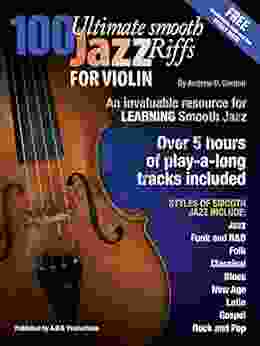
 Eric Hayes
Eric Hayes100 Ultimate Smooth Jazz Riffs For Violin: Elevate Your...
Welcome to the ultimate...

 Vernon Blair
Vernon BlairAll You Need to Know to Start Investing and Trading...
Binance is...
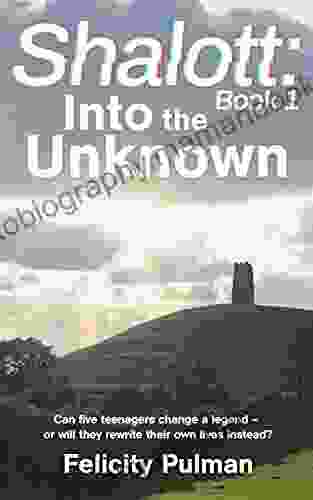
 Greg Foster
Greg FosterShalott: Into the Unknown
In the heart of medieval...

 Will Ward
Will WardMoney Making Money Instead of You Working: Unleashing the...
In a world where...
4.2 out of 5
| Language | : | English |
| File size | : | 1764 KB |
| Text-to-Speech | : | Enabled |
| Screen Reader | : | Supported |
| Enhanced typesetting | : | Enabled |
| Word Wise | : | Enabled |
| Print length | : | 626 pages |


